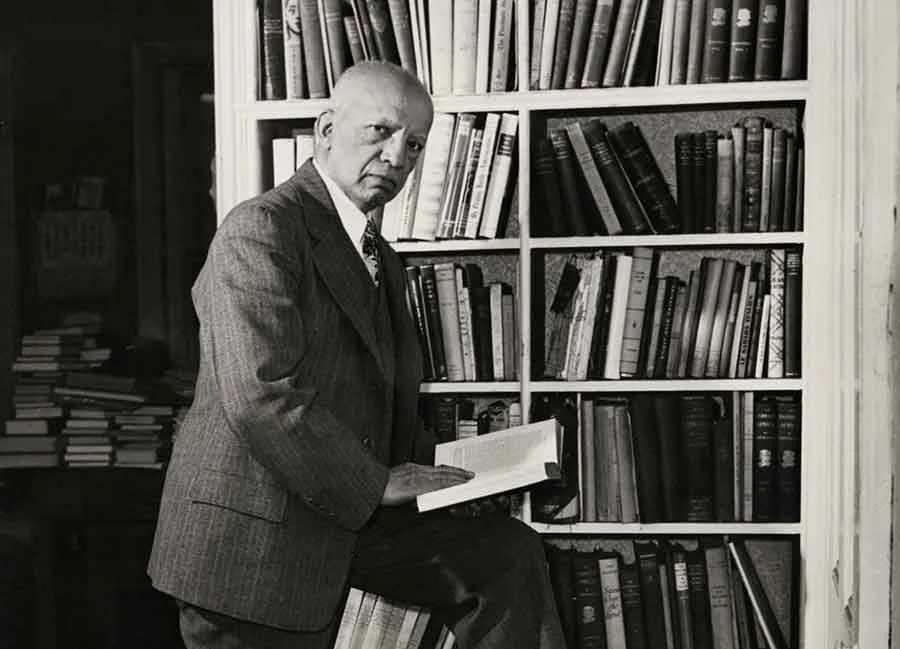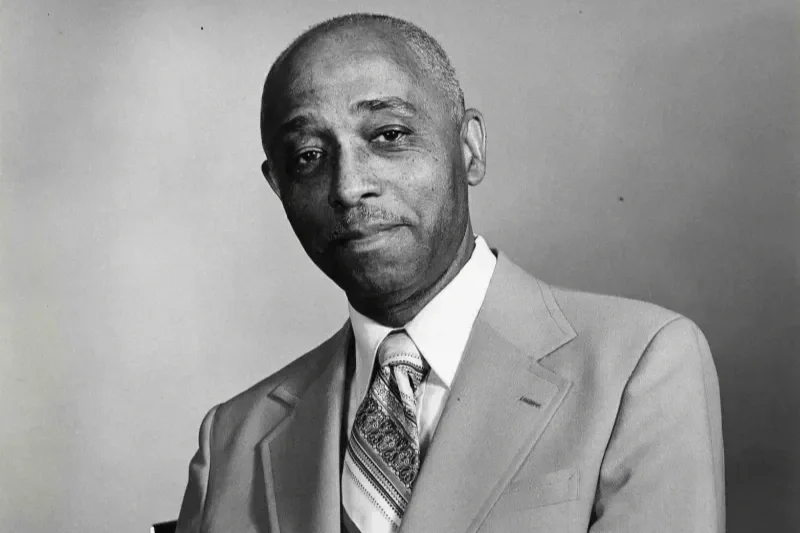Historians Who Innovate
Innovator (n): one who creates new ideas, new methods, or new ways of doing things
When we think about innovation, we often limit our thoughts to technology, engineering, and maybe even business. Seldom do we think about innovators in the field of history - historians who innovate, who go beyond writing books, teaching, and lecturing. These historian innovators recognized a need, moved a vision to reality, built community, and left an enduring legacy.
Below are a few key innovators in the field of Black history, and more are added regularly. These innovators built institutions that carry both their legacy and our history forward far into the future.
Coming soon is a free, adaptable LESSON PLAN about innovators, and can be modified for any grade level.
-

Dr. Anna Julia Cooper (1858-1964)
Dr. Cooper was a pioneer. As the first Black woman to receive a PhD in history (1925, University of Paris), she devoted her dissertation to the study of the Transatlantic Slave Trade and spent the rest of her life in education and intellectual activism. How did she innovate? She transformed her home into a public university to educate working adults who had neither time nor money to attend traditional college. She was the original “by any means necessary” advocate for uplift.
-

Dr. W.E.B. DuBois (1868-1963)
Dr. DuBois was a renaissance historian. It is difficult to summarize the impact of his intellectual influence in one paragraph. Through his widely acclaimed 1903 Souls of Black Folk and decades-long editorship of the NAACP Crisis magazine, his ideas transformed how Black people saw themselves. How did he innovate? He was a leading founder of the Niagara Movement, the National Association for the Advancement of Colored People (NAACP), and the Pan-African Congress. When it came to racial uplift, Dr. DuBois meant business.
-

Dr. Carter G. Woodson (1875-1950)
You may have heard of his book The Mis-Education of the Negro (1933), but did you know that Dr. Carter G. Woodson was the second African American to receive a PhD in history from Harvard, following Dr. DuBois? How did he innovate? In 1915 with racial oppression raging rampant across the country, Dr. Woodson founded the Association for the Study of African American Life and History (ASALH), which would shape how Black history is taught and memorialized in the United States. The following decade, he and his colleagues established Negro History Week in 1926, which has evolved to Black History Month. Without Dr. Woodson’s innovations, we would not know much about who we are as a nation.
-

Mary McLeod Bethune (1875-1955)
When Bethune encountered a gap, she strategically galvanized resources to fill the gap. She created her own school and called it Bethune Cookman College. She created a beach, a hospital, a library, and a funeral home for African Americans when she encountered discrimination. In 1935, she founded the National Council of Negro Women. Did you know that she helped to create the United Negro College Fund and was part of the founding delegation of the United Nations. There was no limit to her innovative actions. How did she innovate? When her good friend Dr. Carter G. Woodson asked her to be national president of the Association for the Study of African American Life and History, she accepted, becoming its first woman president. She served from 1936 to 1950 and ASALH launched its Negro History Bulletin in 1937 during her presidency.
-

Dr. Charles H. Wright (1918-2002)
Dr. Wright was an ob-gyn doctor and delivered over 7,000 babies. He was concerned about the world these little babies would grow to encounter - a world filled with what Dr. King called the triple evils: racism, poverty, and militarism. To equip people with a sense of self and history, Dr. Wright founded a museum in 1965 and called it the International Afro-American Museum which was later renamed the Charles H. Wright Museum of African American History. How did he innovate? In addition to starting a museum, Dr. Wright helped to integrate the medical hospitals in Michigan and he went down to Selma to provide much-needed medical treatment to the civil rights marchers. He was the ultimate innovator.
-

Dr. Quintard Taylor (1948-2025)
Dr. Taylor was an influential historian who grew up in segregated schools and devoted his life to teaching and writing about Black history. He was the first African American president of the Western History Association. How did he innovate? He created the world’s largest online encyclopedia on Black history and called it BlackPast.org. It is a massive digital resource that is used all over the world by students, researchers, and the general public. As a scholar, author, and professor, Dr. Taylor influenced generations of historians who came after him, including one of his proteges who went on to become the first African American Chief Historian of the United States.
